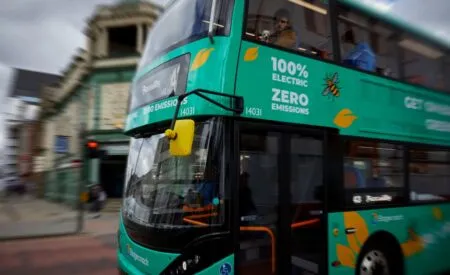New research, commissioned by Transport for London (TfL) and conducted by professional services company Deloitte, shows that by providing open data to developers, the agency is generating annual economic benefits and savings of up to £130m (US$171m) a year.
As well as the economic benefits, the report explains that through the provision of free, accurate and real-time open data, TfL is improving journeys, saving people time, supporting innovation, and creating jobs.
For almost 10 years, TfL has been releasing a significant amount of data, including timetables, service status, and disruption information, in an open format for anyone to use, free of charge. This allows developers and partners to bring new products and services to market more quickly, and therefore extend the reach of the agency’s own information channels within stations, at bus stops and online. More than 80 data feeds are now available for developers through the free unified API, which ensures accurate real-time data is available from one system for over 13,000 developers.
TfL has worked with a wide range of professional and amateur developers, ranging from startups to global innovators, to deliver new products in the form that customers want. This has led to more than 600 apps now being powered specifically using TfL’s open data feeds, used by 42% of Londoners. The report found that TfL’s data provides:
Saved time for passengers The data allows customers to plan journeys more accurately using apps with real-time information and advice on how to adjust their routes, providing greater certainty on travel times, with savings estimated at between £70-90m (US$92-119m) per year;
Better information to plan journeys Customers can use apps to travel more easily and take more journeys, using TfL services more regularly, with the value of the extra trips conservatively estimated at up to £20m (US$26m) per year;
Creating commercial opportunities for third party developers A wide range of companies now use TfL’s open data to help generate revenue, increasing the ‘Gross Value Add’ that they contribute to London’s economy, estimated at between £12-15m (US$15-20m) per year;
Leveraging value and savings from partnerships Agreements with major customer-facing technology platforms give TfL significant information on areas it does not collect data, such as crowdsourced traffic feeds, providing a better understanding of all journeys in London.
Vernon Everitt, TfL’s managing director of customers, communication and technology, said, “This new research from Deloitte backs our strong belief that providing data in an open, transparent and free-to-access way can be massively beneficial for both London and the wider economy.”




